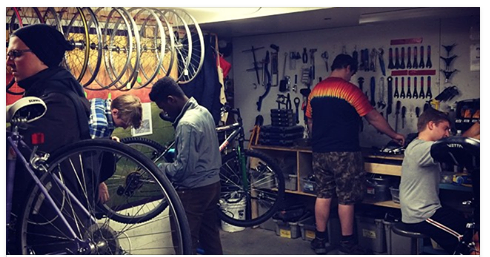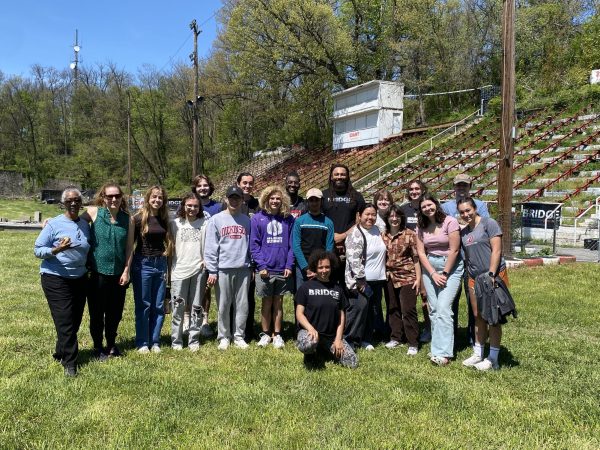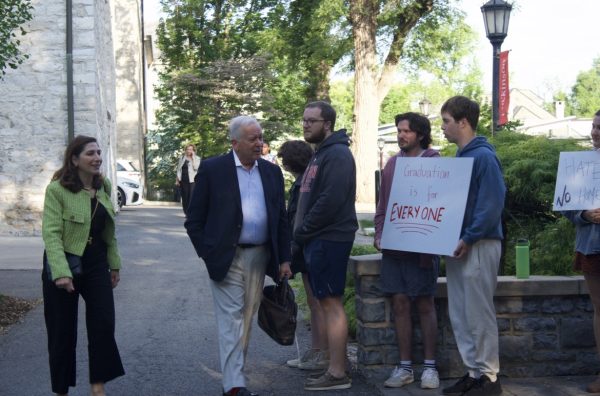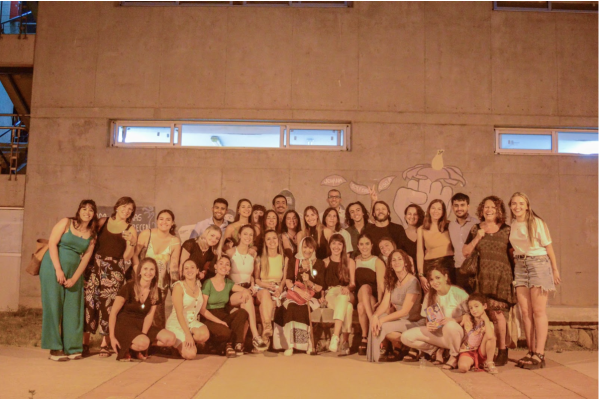DPS Addresses Student Complaints of Broken Bikes

Photo Courtesy of Dickinson Gateway
Students work on bikes in the Handlebar, located in the Bike Room of Davidson-Wilson dorm.
Over the last few weeks, the DPS Red Bikes rental program has seen an increase in the number of mechanical malfunctions in their fleet, leading to discontent among Dickinsonians who make use of the program.
Regular bikers have voiced their concerns over this issue. Hexi Zhang ’17, a frequent bike user, said “My bike’s tires have run out of air for the past two weeks or so, but I could not find a place to fix them.” Chief of Public Safety Dolores Danser from DPS says that the maintenance of the bikes are coordinated through the Center for Sustainable Education (CSE).
“If a student reports to us that there is a problem with a bike [and] if it’s a safety thing we remove that bike from the fleet and then CSE has an agreement with a [professional] who comes in and fixes them periodically,” she said.
According to Marcus Welker, project coordinator for CSE, this professional is Chris Donate, a bicycle mechanic from Mechanicsburg. He is contracted by CSE to fix the bikes during the summer and winter breaks. Welker has also been contracted to fix bikes during the academic year as well.
Danser maintains that bicycles are taken out of circulation for a variety of safety issues, such as flat tires, loose chains, and seats that cannot be tightened. Currently, there are 13 bikes available for students, with one going under repair for a loose chain.
According to Welker, CSE uses existing funds to repair the Red Bikes twice a year, once during the summer break and during winter break.
Alex Holmes ’18, a Co-Biking@Dickinson Intern, says the main reason for malfunctioning bikes may be the timing of the year. “[The] beginning of the semester is when bikes are taken out of storage, where they were not used and maintained for the summer,” says Holmes. “Additionally, fall is an ideal season for riding bikes, which also increases the risks of broken bikes.”
Holmes also mentioned that “Students tend to look for bike repair shops that are free or within their budget – of which there are not many of them out there.”
Holmes advised bikers to come to the Handlebar for tips on how to fix and maintain their bikes.
The Handlebar, launched in 2011 in collaboration with the CSE and the Idea Fund, can be found at Davidson-Wilson’s Bike Room and is open on Monday & Thursday from 4:30 to 6:30 p.m. They can be contacted at [email protected].
“The Handlebar is an organization that teaches you how to repair your own bikes with our trained and certified volunteers. We also provide parts and tools that assist you in doing so” maintains Holmes.
According to Holmes, most of the bikes reported damaged are students’ personal bikes. The most common malfunctions are fairly standard, says Holmes, and include everyday malfunctions like tires that need to be pumped, old chains that need replacements or brakes that need adjusting. He also confirmed that “There are no signs of vandalism or malicious doings on these bikes.”
According to Holmes, some of these problems can be ameliorated by proper care: “Make sure you do not leave [your bike] under the rain or snow. If you can, try to pump the tires and grease the chains every couple of weeks to ensure they are in good shapes throughout the semester.”





